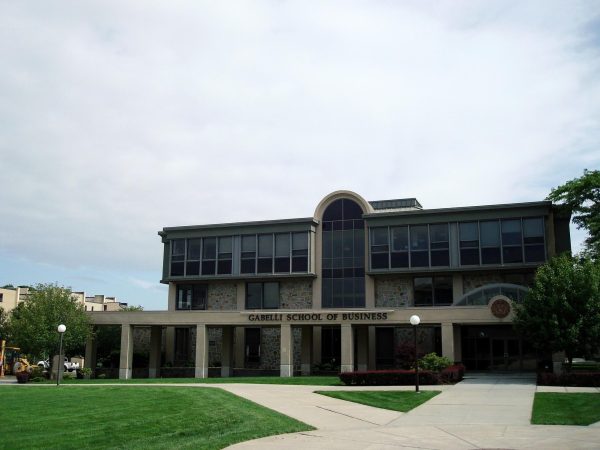RWU 2016 crime statistics released in Clery Report
By Nicholas Polinsky | Herald Contributor
In order to provide information to the public and to obey federal law, every postsecondary education facility that utilizes federal aid programs is required to follow policy under the Clery Act.
This act requires a report to be filed annually by Oct. 1 containing crime statistics, security policies, and resources for victims of varying crimes, as well as fire safety information and policy information.
In 2016, there were 309 liquor law violations reported for the Bristol campus. This is a decrease from the previous year’s 429 liquor law violations, as well as the 360 liquor law violations from 2014.
The other crime statistics from the same academic year include: eight reports of rape, six dating violence offenses, four drug law arrests, three reports of fondling, two burglaries, two drug law violations, one aggravated assault, one domestic violence offense, and one arson offense.
The Clery Act was enacted in 1990 during the George Bush Sr. presidency under the name of the “Crime Awareness and Campus Security Act of 1990.”
It was created after the murder of Lehigh University student Jeanne Clery in 1986, and was formally named the “Jeanne Clery Disclosure of Campus Security Policy and Campus Crime Statistics Act,” or simply “Clery Act” in 1998.
It is important to note that these are simply the reported crime statistics.
Student Life Compliance Manager Heidi Hartzell provided some insight into the workings and purpose of the Clery Act.
“RWU’s Annual Security and Fire Safety Report is an annual report that includes crime statistics and prevention information to assist community members in making decisions which affect their personal safety and that are required by the [Clery Act],” Hartzell said.
She added, “RWU encourages members of the community to use the report as a guide for safe practices on and off campus.”
The 2016 Crime Statistics report, which covers both the Bristol and the Providence campus, was sent out on Friday, Sept. 29 by Vice President of Student Life Dr. John J. King.
The majority of this document contains the university policies for fire safety and a variety of crimes, ranging from liquor law violations to arson. However, charts with the number of fires/crimes can also be found within the report.
Christine Crocker, a professor in the School of Justice Studies, weighed in on the Clery Act and its impact on the university.
“[The Clery Report] lets the university population know what’s going on. Information is power,” Crocker said, adding that she believes that the report can provide students with a better perspective on the fires and crimes at their universities.
Crocker also noted that “[RWU] has a lot less crime than some other places,” and that the numbers might not be what students expect to see.
Freshmen Jimmy Packer and Michael Delano offered different viewpoints on the information presented in the Clery Report.
Reflecting on the data, Packer stated that his opinion on the safety of the university has remain unchanged.
“I am unsurprised by the crime statistics of RWU, the overwhelming majority being liquor law violations,” he said.
Delano, however, “found the alcohol violation stats astounding.”
“[The Clery Report] was super informative and you could learn a lot from just a glance,” he said.
More information on the updated Clery Report can be accessed on the university website.





